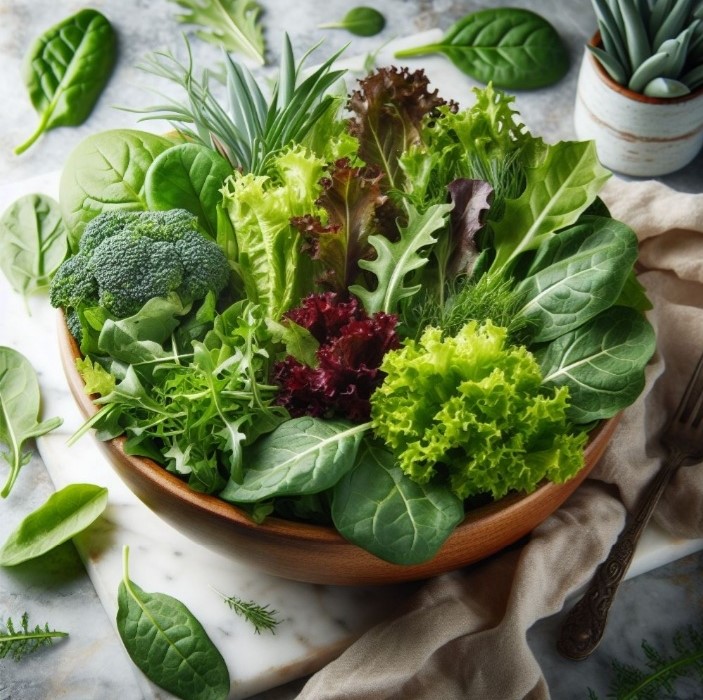Home Remedy for Indigestion
Indigestion, also known as dyspepsia, is something most of us have experienced at one time or another. Whether it’s that uncomfortable feeling of fullness after a meal, bloating, or even mild pain in the stomach, indigestion can disrupt our daily lives in a major way. In this blog, we’ll explore what indigestion is, what causes it, and how you can manage it with some simple, natural home remedy for constipation
What is Indigestion?
Indigestion isn’t a disease on its own but rather a collection of symptoms that you might experience after eating. It’s that feeling of discomfort in your upper abdomen that often makes you wish you hadn’t eaten that extra slice of pizza or had that second cup of coffee. The symptoms can vary from person to person, but they typically include:
- A feeling of fullness during or after a meal
- Bloating
- Burning sensation in the upper abdomen
- Nausea
- Belching
These symptoms can be occasional or frequent, depending on various factors, including what you eat, how you eat, and your overall lifestyle. While indigestion is usually not a cause for serious concern, it can be quite uncomfortable and sometimes embarrassing. But before we dive into home remedies for indigestion, let’s look at some common causes of indigestion.
What Causes Indigestion?
Indigestion can be triggered by a variety of factors, many of which are related to diet and lifestyle. Here are some common causes:
- Overeating: Eating too much food at once can overwhelm your digestive system, leading to indigestion. This is particularly common during holiday feasts or after indulging in a rich, heavy meal.
- Eating Too Quickly: When you eat too fast, you tend to swallow air along with your food, which can cause bloating and discomfort.
- Fatty or Spicy Foods: Foods that are high in fat or spices can be harder to digest, leading to symptoms of indigestion.
- Caffeine, Alcohol, and Carbonated Beverages: These can irritate the stomach lining and contribute to indigestion.
- Stress and Anxiety: Your mental state can have a big impact on your digestive health. Stress and anxiety can slow down digestion, leading to discomfort.
- Smoking: Smoking weakens the lower esophageal sphincter, which can allow stomach acid to back up into the esophagus, causing indigestion.
- Certain Medications: Some medications, like NSAIDs (non-steroidal anti-inflammatory drugs), can irritate the stomach lining and cause indigestion.
When Should You See a Doctor?
Before we get into natural remedies, it’s important to know when indigestion might be a sign of something more serious. If you experience any of the following symptoms along with indigestion, it’s best to consult a healthcare professional:
- Severe, persistent pain
- Unintentional weight loss
- Difficulty swallowing
- Vomiting
- Black, tarry stools (a sign of bleeding)
- Chest pain (especially if it radiates to your arm, neck, or jaw, as this could be a sign of a heart attack)
Now that we’ve covered the basics, let’s talk about how you can manage indigestion at home with natural remedies.
Home Remedy for Indigestion
The good news is that many cases of indigestion can be managed at home with simple, natural remedies. These remedies not only help relieve symptoms but can also improve your overall digestive health.
1. Ginger
Ginger has been used for centuries to treat various digestive issues, including indigestion. It’s known for its anti-inflammatory properties and can help reduce nausea, bloating,
How to Use Ginger for Indigestion:
- Ginger Tea: Steep a few slices of fresh ginger in hot water for about 10 minutes. Add honey or lemon for taste, and sip slowly.
- Chewing Ginger: You can also chew on a small piece of fresh ginger after a meal to aid digestion.
- Ginger Supplements: If you’re not a fan of the taste, ginger supplements are available in capsule form.
2. Apple Cider Vinegar
Apple cider vinegar (ACV) is another popular remedy for indigestion. Although it’s acidic, ACV can actually help balance the pH level in your stomach, making digestion easier.
How to Use Apple Cider Vinegar for Indigestion:
- Mix one to two tablespoons of ACV with a glass of water.
- Drink it before or after a meal to help with digestion.
Tip: Make sure to use raw, unfiltered apple cider vinegar, as it contains the “mother,” which is rich in beneficial enzymes and probiotics.
3. Fennel Seeds: Home remedy for indigestion
Fennel seeds are known for their ability to reduce bloating and gas. They contain anethole, a compound that helps relax the stomach muscles and improves digestion.
How to Use Fennel Seeds for Indigestion:
- Fennel Tea: Crush a teaspoon of fennel seeds and steep them in hot water for 10 minutes. Strain and drink after meals.
- Chewing Fennel Seeds: Chewing a teaspoon of fennel seeds after a meal can also help prevent bloating.
4. Chamomile Tea
Chamomile is not just for bedtime—it’s also great for soothing the stomach. It has anti-inflammatory and antispasmodic properties that can help reduce the symptoms of indigestion, particularly if stress is a contributing factor.
How to Use Chamomile for Indigestion:
- Steep a chamomile tea bag or dried chamomile flowers in hot water for 5-10 minutes.
- Drink the tea after meals or before bed to promote digestion and relaxation.
5. Peppermint
Peppermint is another herb that can work wonders for your digestive system. It contains menthol, which has a soothing effect on the muscles of the digestive tract. This can help relieve pain, bloating, and gas.
How to Use Peppermint for Indigestion:
- Peppermint Tea: Brew peppermint tea by steeping fresh or dried peppermint leaves in hot water for 5-10 minutes. Drink it after meals.
- Peppermint Oil: You can also take peppermint oil capsules, but be sure to choose enteric-coated capsules to avoid heartburn.
6. Baking Soda
Baking soda, or sodium bicarbonate, is a natural antacid that can quickly neutralize stomach acid and relieve indigestion.
How to Use Baking Soda for Indigestion:
- Mix half a teaspoon of baking soda in a glass of water.
- Drink it slowly to relieve symptoms.
Warning: Don’t use this remedy too frequently, as excessive use of baking soda can lead to imbalances in your body’s electrolytes.
7. Aloe Vera Juice
Aloe vera is not just for sunburns! Its juice can help soothe the stomach lining and reduce inflammation, making it a great remedy for indigestion.
How to Use Aloe Vera for Indigestion:
- Drink half a cup of aloe vera juice before meals.
- Make sure to choose a brand that is specifically for internal use, as some aloe vera products are meant for external use only.
8. Licorice Root
Licorice root has been used in traditional medicine to treat various digestive issues. It helps protect the stomach lining by increasing the production of mucus, which can prevent damage from stomach acid.
How to Use Licorice Root for Indigestion:
- Licorice Tea: Steep licorice root in hot water for 10 minutes. Drink it before meals.
- DGL (Deglycyrrhizinated Licorice): If you’re concerned about the glycyrrhizin content in licorice, which can raise blood pressure, you can opt for DGL supplements.
9. Carom Seeds (Ajwain)
Carom seeds, commonly known as ajwain, are a traditional remedy for indigestion in Indian households. They have thymol, which can help release gastric juices and improve digestion.
How to Use Carom Seeds for Indigestion:
- Mix a teaspoon of carom seeds with a pinch of black salt and chew it after meals.
- You can also steep carom seeds in hot water and drink it as tea.
10. Papaya
Papaya contains an enzyme called papain, which can help break down proteins and aid in digestion. It’s particularly helpful if your indigestion is due to eating too much meat or protein-rich foods.
How to Use Papaya for Indigestion:
- Eat a small serving of fresh papaya after a meal.
- You can also take papaya enzyme supplements if fresh papaya is not available.
Lifestyle Tips to Prevent Indigestion
While natural remedies can help manage indigestion, making some lifestyle changes can go a long way in preventing it altogether. Here are a few tips:
- Eat Smaller, More Frequent Meals: Instead of three large meals, try eating smaller, more frequent meals to ease the burden on your digestive system.
- Chew Your Food Thoroughly: Take your time to chew your food well. This not only aids digestion but also helps you eat more mindfully.
- Avoid Trigger Foods: Identify and avoid foods that trigger your indigestion. Common culprits include fatty foods, spicy foods, and caffeine.
- Stay Upright After Eating: Lying down immediately after eating can cause stomach acid to move up into the esophagus, leading to heartburn and indigestion. Try to remain upright for at least 30 minutes after a meal.
- Wear Loose Clothing: Tight clothing, especially around the abdomen, can put pressure on your stomach and worsen indigestion. Opt for loose, comfortable clothes, especially after a meal.
- Manage Stress: Since stress can exacerbate indigestion, finding ways to manage it is key. Practices like yoga, meditation, or even taking a short walk after a meal can help reduce stress and improve digestion.
- Limit Alcohol and Caffeine: Both alcohol and caffeine can irritate the stomach lining and lead to indigestion. Try to limit their intake, particularly in the evening.
- Quit Smoking: Smoking weakens the lower esophageal sphincter, making it easier for stomach acid to back up into the esophagus, causing indigestion. Quitting smoking can significantly improve your digestive health.
Indigestion can be a real discomfort, but fortunately, there are many home remedy for indigestion and lifestyle changes that can help manage and even prevent it. From ginger tea to mindful eating, these remedies offer simple, effective ways to keep your digestive system happy.
Nature has a way of providing us with what we need to maintain our health and well-being. By incorporating these natural home remedy for indigestion into your routine, you’re not just treating indigestion—you’re taking a step towards a more balanced, health-conscious lifestyle.
Final Thought:
Remember, while home remedy for indigestion can provide relief, it’s important to listen to your body. If your symptoms persist or worsen, it’s always best to consult with a healthcare professional. With the right approach, you can enjoy your meals without the worry of indigestion weighing you down.
DISCLAIMER: Please note that, the information provided on this website is for informational purpose only and is not intended as a substitute for professional, medical advice or diagnosis or treatment. Read more here






